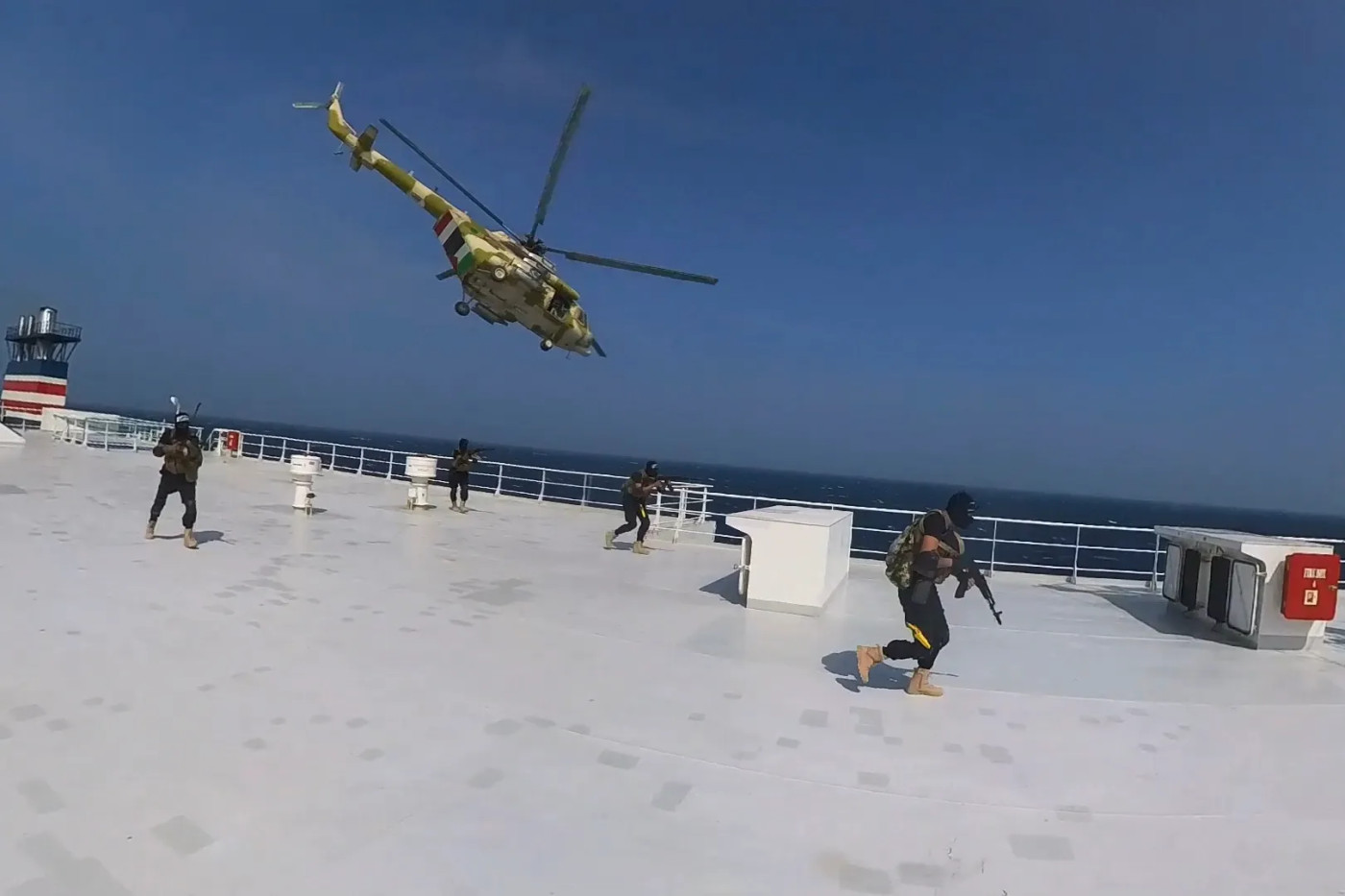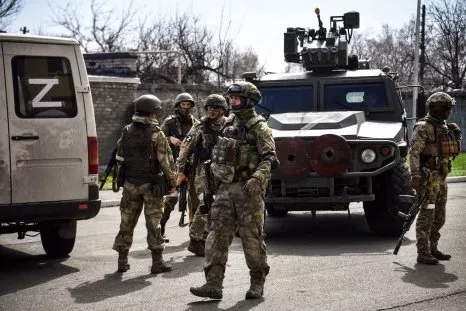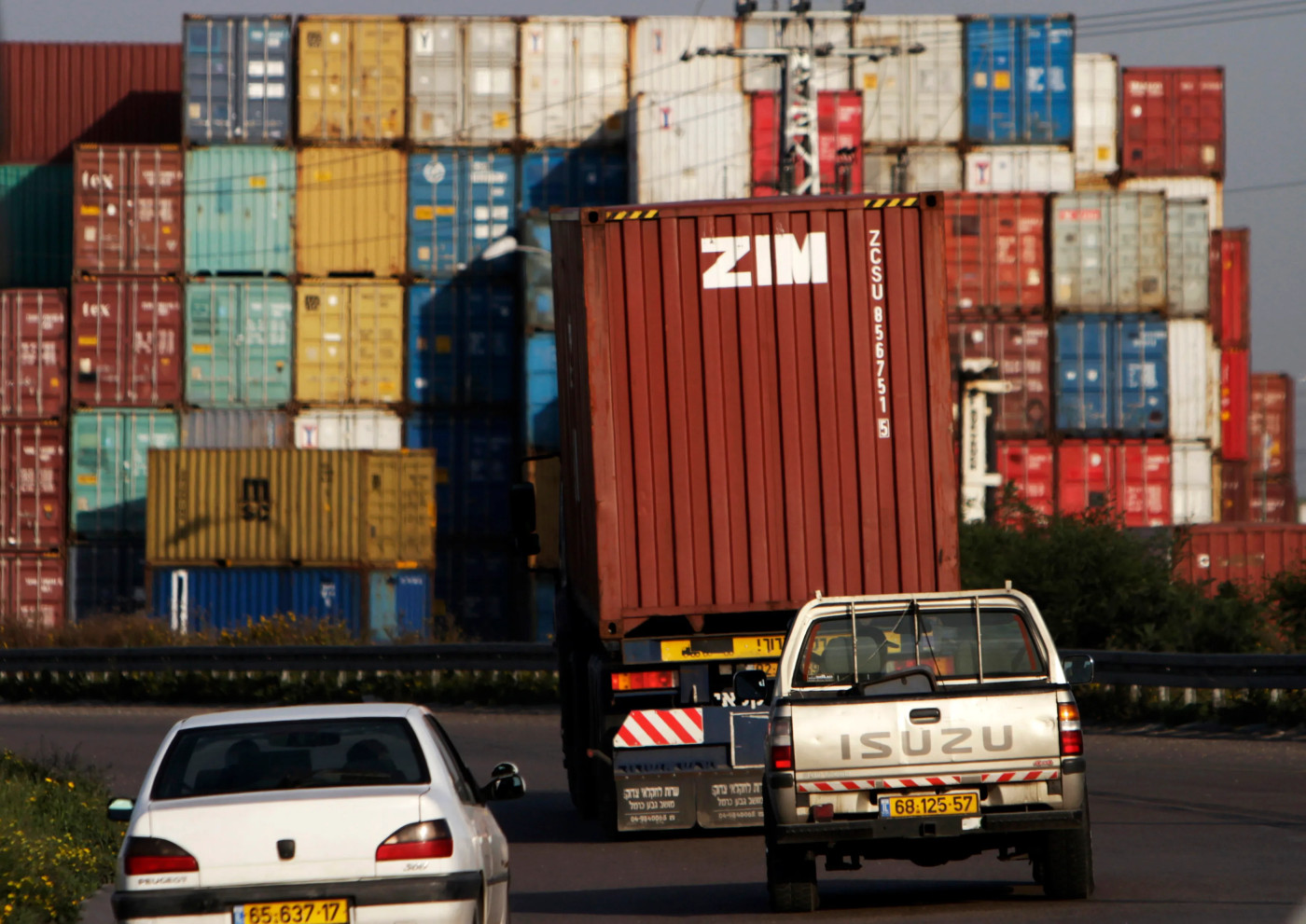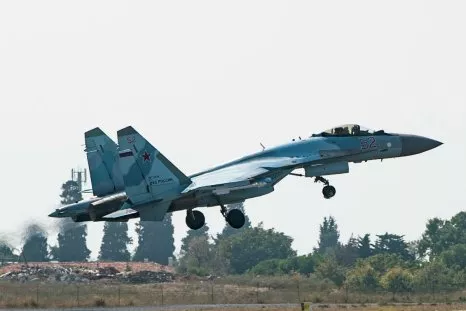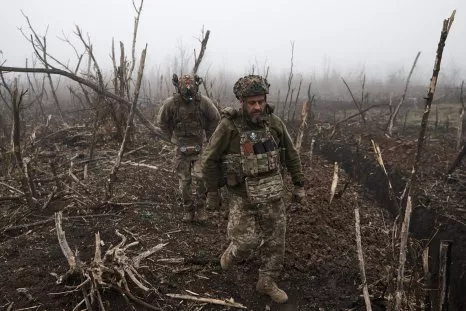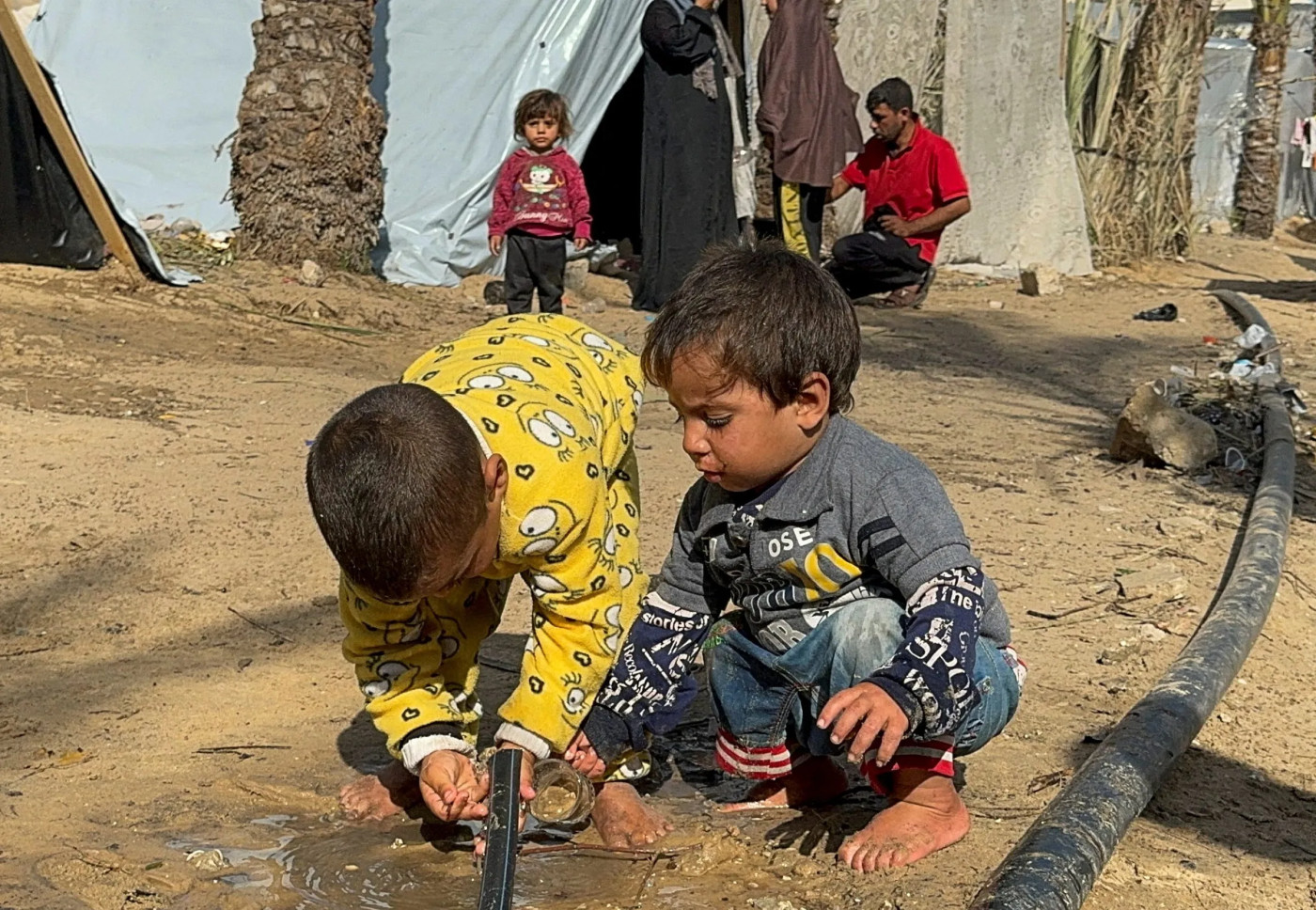Russian Soldier Describes Moscow's Use of 'Meat Assault' Tactic
A Russian soldier fighting in Ukraine detailed the reasons behind his stance that Moscow's military has resorted to a tactic known as a "meat assault."
Throughout the war that Russian President Vladimir Putin launched on Ukraine in February 2022, his military has been accused of using "meat assaults," also known as "meat waves." The term is jargon for infantry-led frontal assaults, which attempt to overwhelm the opposite side by sending large numbers of those regarded as essentially single-use soldiers to the front line with little regard to the death toll.
WarTranslated, an independent media project that translates materials about the war into English, shared a post describing recent meat assaults on X, formerly Twitter, on Monday.
The message was originally posted on Telegram by a Russian serviceman who has become a prominent military blogger under the alias Vozhak Z.
According to Vozhak Z's Sunday Telegram post, meat assaults have been occurring recently when infantry forces are being ordered to conduct a strike "without any artillery support, without suppressing enemy firing points."
Russian serviceman Vozhak Z, who is involved in the Avdiivka battle, describes the meat assault strategy and why it was adopted. Primarily due to the lack of any artillery preparation on the Russian side. https://t.co/x98fDXPqvM pic.twitter.com/EkzsPy27ts
— Dmitri (@wartranslated) October 30, 2023
Along with citing a lack of artillery during these operations, Vozhak Z described meat assaults being conducted side by side and thus leaving an area between regiments unsecured and open for Ukrainian attacks.
"Why is this happening? Mostly due to lack of suppression. Or the inability to properly manage them. When two regiments attack side by side, the junction between them is practically unsecured. Everyone hopes for their neighbor. Or one has tanks and artillery, and the other one doesn't. But the order to take the fortification is there," the serviceman wrote.
Vozhak Z said that in his location, which WarTranslated identified as the heavily contested village of Avdiivka, Russia's military "cannot reach small arms firing distance."
"Our tanks start work—enemy kamikazes immediately look for them. Hence the groups' loss at the exit," he wrote, per WarTranslated. "This is 'meat assault' in its most uncomplicated form. The result is zero."
Vozhak Z's post ended with him saying perhaps his unit is only being use to wear down Ukraine's forces before another group of Russian soldiers will add to the assault.
"There is a distant guess that all our attacks are in order to exhaust them, and then the regulars will come in and finish the job with a powerful blow," he wrote. "As long as our regiment does not finish while the regulars are marching."
The Institute for the Study of War (ISW) think tank on Monday also wrote of Russia's reliance on meat assaults. The think tank noted Ukrainian Tavriisk Group of Forces Spokesperson Colonel Oleksandr Shtupun announced Russia is preparing units near Avdiivka to conduct meat assaults and is "training 'Storm-Z' assault units for future assaults without equipment."
The ISW included Vozhak Z's message in its daily assessment of the war, as well as wrote of Russian military blogger Svyatoslav Golikov's claim that Storm-Z units in Avdiivka and near Bakhmut "are often destroyed after a few days of active operations and on average lose between 40-70 percent of their personnel."
According to the think tank, Golikov said Storm-Z units are poorly trained and "are often introduced into battle before conducting reconnaissance or establishing connections with neighboring units and typically struggle to evacuate their wounded without artillery cover, leading to higher losses."
Disclaimer: The copyright of this article belongs to the original author. Reposting this article is solely for the purpose of information dissemination and does not constitute any investment advice. If there is any infringement, please contact us immediately. We will make corrections or deletions as necessary. Thank you.
